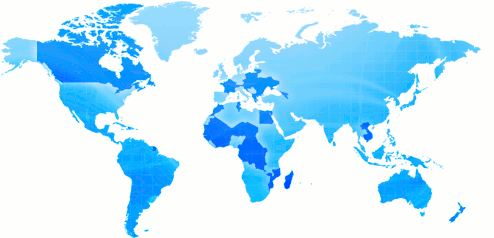Our philosophy
Learning a language is quite different from learning any other matter. The theoretical knowledge of rules and structures will never be enough to "survive", even less work properly. A personal practice and use of these tools is absolutely necessary.
Our Goals
Our Goals allow you to acquire strong practical competence in:
- Oral Comprehension
- Oral Expression
- Written Comprehension
- Written Expression
According to the European Language Reference Guide (ELRG), we train students from the level A0/A1 (beginner) to the level C2 (advanced).
Our Methode
L’apprenant est au centre de l’apprentissage ce qui signifie qu’il devient acteur de son apprentissage. L’apprenant est en situation pour découvrir certains aspects de la langue, les mémoriser et les produire à l’oral et l’écrit.
The student is in the center of the learning process, which means he/she is the author of his/her learning. The student is placed in situations to discover different aspects of the language, memorize them and use them oraly and in written communication.
Teachers don’t see themselves as just knowledge dispensers but rather as organizers of the group and personal learning process.
Evaluation
Your progress is evaluated at the end of each week and each trimester. These evaluations help you as well as your teacher get an idea of where you are and what you need to focus on. The grades in France are on a scaled of 1 to 20. 10/20 means “correct”, 14/20 means “pretty good”, 20/20 is almost never reached as we consider it perfection for the specific level.
To maintaine ideal learning conditions, we use a ratio of a maximum 14 students per teacher (average 10/1).
 THE FRENCH CHALLENGE
THE FRENCH CHALLENGE
French is not limited to just France! French is spoken daily in 54 countries (Source: The Ethnologue, 2004) mainly in Europe, West Africa and Canada and including the Middle East, Asia, North Africa, Pacific Islands and the Caribbean Area.
French is a door wide open to a large network of multicultural and multinational cooperation. It is a rich culture made of old traditions from castles in France to tribal tales of Togo, of modernity from Quebec to Abidjan, of famous writers from Victor Hugo to Mircea Eliade or Léopold Sédar Senghor.
This cooperation implies certain skills that we value a lot:
- Adaptation: This is a key word for your learning. ADAPTING means being able to come into the culture that speaks the language. The more you become French, the easier you speak French.
- Openness: what is new or different seems dangerous. Most often, it is an illusion that a real knowledge and a personal involvement will ban.
- Humility: You often feel like a child when learning a new language. You’re considered as an adult but be ready “to become like a little child” that learns actively and simply.
- Spirit of Friendship: It allows you to dare meeting others and have fun along the way!













